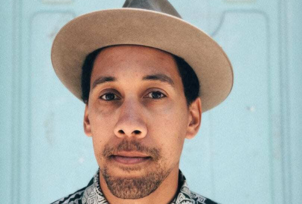
You are a judge for the 2023 FilmLight Colour Awards. What are you looking for in entries this year?
I’m looking for work that goes that step beyond what is required, and that doesn’t necessarily mean something new or pushing colour too far. Work that shows that high level of craft is what stands out from the rest.
Do you think it’s important for colourists to be recognised?
It’s great to have a platform like this that recognises colour grading. Like all parts of the process, colour grading is necessary for the end result – and without it done right, the end result will suffer.
Judging is now finished. Was there anything that stood out to you or captured your attention?
We’ve seen some really interesting entries and it’s always good to discover new talent and see such a broad scope of work from across the globe.
Can you tell us about your career progression to-date and your journey to becoming head of colour at ETC?
I started off as a runner thinking 3D was my path, but I quickly realised I wanted something more niche. When I discovered the colour department, lacing up film on the telecine, I was hooked. I’ve always had a passion for photography and the dark room so it was a natural fit.
I worked my way up the ranks as so many do and became a colourist at the Mill in London before moving to Chicago to set up the Mill there. I spent five years there establishing myself and The Mill before wanting a fresh challenge and moving back to London joining ETC to really push the colour department there and build a strong colour team.
What are the biggest changes you have seen in the world of colour grading recently?
For me, it’s the explosion of remote grading. Previously it was always difficult to convince clients about the ease and benefits of it. Now everyone is familiar and comfortable with it and the technology and displays have improved drastically, too, which has also helped. With this, it’s opened the possibility to connect with new clients, different markets and also help maintain long-lasting relationships.
You have graded vivid and beautiful imagery across commercials and music videos – is there a genre/format that you prefer and if so, why?
I like the variety of different projects – each with their own challenges and enjoyment and ways of working. I don’t like to get too comfortable or set into a pattern with work, so I’m always looking for variety.
Electric Theatre Collective has recently expanded their work into long form. What is it like to grade long format?
It’s been great delving into longform, starting to work with new clients and just being exposed to a completely different circle. I’m also enjoying collaborating with long term friends who have also moved into longform.
How is it working on commercials compared to other formats? Is there a desire to always achieve something new? How do you manage this?
In some ways it can be the most challenging as there is a lot of pressure and attention to detail over such a small amount of time and shots compared to longform, so people often fixate over the smallest details. I’ve always enjoyed working under pressure and to deadlines, so I really enjoy commercial work. Each format has its own challenges and rewards.
What’s your career highlight to date and why?
Winning the British Arrows Gold craft award was a big highlight for me, in 2019. It was in my first year returning to the UK market and since starting as an assistant it was always something I wanted to achieve.
What are you working on now/next?
Currently working on some big Christmas ads and some NDA projects.
